Where there’s Trump, there’s fire: Blazes and explosions darken his businesses
Last Sept. 11, former President Donald Trump skipped the commemorative 9/11 events and instead posed for photo-ops in Manhattan with first responders. Many didn't know he had a lot for which to personally thank firefighters because just hours earlier seven local firehouses in upstate New York had battled a blaze at one of Trump's properties.
Trump, who became known as a faux reality television star by regularly throwing out the phrase "you're fired," seems to have had a serial loser's bad luck where fires are concerned.
Trump properties sustained at least seven fires since he became president in 2017. There were other fires that date to before he assumed office. And his string of loser luck includes a 1989 helicopter crash—the only one of its kind—that killed three Trump casino executives whose lives Trump had insured for, he said at the time, $35 million.
Fire Chief John Fogarty said one 1982 blaze was "definitely, absolutely, positively arson." But seven hours later Deputy Fire Commissioner John Mulligan declared it accidental.
Here is a catalog of the various fires that have occurred at Trump properties over the last few years:
Hudson Valley, 2021
Investigations are ongoing after a three-alarm fire broke out on Sept. 10 at a barn on Trump's private 300-acre, 18-hole Trump National Golf Course Hudson Valley in Dutchess County, New York, about 130 miles north of Manhattan.
On Sept. 14, the local East Fishkill Fire District chief, Frank Lacalamita, said:
"All I know is it's definitely not suspicious… It's not like, 'Hey, listen someone did it.' It's not like that at all. The place has tons of cameras, there was nobody around – there was nothing suspicious at all."
It took about two hours for 70 firefighters from at least seven local firehouses to extinguish the blaze. Firefighters found the 50-foot-by-100-foot barn structure that houses golf carts and their charging system engulfed in flames. The first responders finally cleared from the scene just before 1 a.m. on Sept. 11. Later that same day, Trump made a surprise visit to a New York City firehouse to make brief remarks and pose for pictures with 9/11 responders on the 20th anniversary of the Twin Towers terrorist attacks. There did not appear to be any mention of his own fire hours earlier.
New York City, January 2018
In January 2018, a fire broke out on the Trump Tower roof in Manhattan. A New York Fire Department spokesman referred to it as a "quick, easy and routine" electrical fire.
New York City, April 2018
Three months later, on April 7, one resident was killed and three people were injured after an explosion on the 50th floor of Trump Tower. Six firefighters were injured battling the four-alarm fire. Fire Commissioner Daniel Nigro noted that the Trump Tower "upper floors, the resident floors, are not sprinklered."
The resident who died, Todd Brassner, 67, had tried to sell his $2.5 million condo unit, but after Trump became president there were no buyers. Rents plummeted in the 58-story concrete tower. The price fall began when Trump declared his candidacy in June 2015.
Commissioner Nigro said the blaze was a "very difficult fire," even though most of the damage was contained to Brassner's apartment 50C. Six firefighters sustained minor injuries but the lack of other injuries or damage seems incredibly lucky as reportedly the smoke alarms didn't function the night of the fire. Some residents complained that "the building did not announce there was a fire and they failed to say to evacuate."
One resident, Dennis Shields, a boyfriend of Bethenny Frankel of the Real Housewives faux-reality television shows, reported that he learned about the fire only because of a text from a childhood friend, Michael Cohen, who had been Trump's longtime attorney.
Shields said that "Michael Cohen, Trump's lawyer, texted me and he said, 'Are you in the building?' and I texted him back, 'Yes.' He said, 'You better get out, there's a fire'," Shields told CBS News.
Sprinklers were not required when Trump Tower was built in the early 1980s. However, in 1999, then-mayor Rudy Giuliani's administration pushed for legislation to require older buildings to retrofit with sprinklers. Trump was among the real estate developers who successfully lobbied against adding fire sprinklers in existing New York high-rises, including Trump Tower. As enacted in 1999, the legislation required retrofitting high-rises with sprinklers only when renovations totaled 50 percent or more of the building's value, effectively eliminating the requirement except when a high rise is gutted and rebuilt.
According to public records, there were only two other four-alarm fires in Manhattan in 2018. Nine days after the fire, the FDNY declared the fatal four-alarm Trump Tower fire accidental, caused by multiple overloaded power strips. Brassner's apartment lacked a smoke detector.
Brassner had amassed artwork and other collectibles at more than $3 million. That included a 1975 Warhol portrait of Brassner valued at $850,000. The condition of Brassner's 100 vintage electric guitars and works of art is unknown.
Despite the extensive art collection and expensive condo, Brassner regularly failed to pay common charges for his property on the 50th floor and the Trump condominium board regularly placed liens on his apartment until the fees were paid. Public records show that between 2003 until 2013 the Trump Condominium put a lien on the Brassner's property for unpaid common charges almost every year. The unpaid amounts varied from $4,387.92 to $21,668.03 per year.
After the fatal fire, the Trump Condominium board placed a new lien on Brassner's apartment, for $52,213.38 and sued his estate for $90,000. (Residential Board of Trump Tower Condominium v. Aaron Brassner, as executor of the estate of Todd R. Brassner, 159812/2018.)
Baku, Azerbaijan, April 2018
On April 28, 2018, a fire broke out at the Trump Tower in Baku. The blaze started at the top floor of the building and burned through about 20 stories before firefighters extinguished the flames by midafternoon. Hours later firefighters were called back to battle a second fire.
A Russian news portal posted a video showing that the fire rekindled in the evening, this time burning through much of the building.
After 10 years of construction with Ivanka Trump in charge for her father, the corruptly financed Baku Trump Tower was still not finished when it caught fire.
The New Yorker magazine reported in March 2017 that the tower appeared "to be a corrupt operation engineered by oligarchs tied to Iran's Revolutionary Guard." The Trump Organization had extensive involvement and oversight on the project with Trump staff visiting monthly.
When the Trump Organization got involved in the project, they knowingly signed on even though any form of due diligence would have revealed that the project had been financially entangled with an Iranian family tied to the Iranian Revolutionary Guard Corps. In his reporting in The New Yorker, Adam Davidson wrote that he spoke with more than a dozen contractors who described behavior on the project as "nakedly corrupt."
One contractor confirmed his firm was always paid in cash, and that he witnessed other contractors being paid in the same way. He said, "They would give us a giant pile of cash," adding, "I got $180,000 one time, which I fit into my laptop bag, and $200,000 another time." Once, a colleague of his picked up a payment of $2 million. "He needed to bring a big duffel bag," McDonald recalled.
New York City, March 2017
Just six weeks after Trump became president, a fire broke out on the 47th floor of the Trump International Hotel overlooking Central Park and Columbus Circle. The high rise had been a corporate office before being retrofitted as a hotel with Trump's name on it. The fire was deemed not suspicious.
Las Vegas, April 2017
In April 2017, a 28-year old man was arrested at the Trump International Hotel in Las Vegas after officials found four separate devices used to ignite different fires—one in the pool restroom area and on the 17th floor of the Trump International Hotel in Las Vegas.
The pool deck fire was confined to two toasters and "various combustible materials," the Fire Department said. The 17th-floor fire was, similarly, confined to two toasters and "various combustible materials," the Fire Department said.
Fire officials said toasters, towels and other materials set aflame on the 17th floor were quickly extinguished by hotel security personnel. Firefighters extinguished the restroom fire.
Clark County (Las Vegas) Fire Department spokesman John Steinbeck said the multiple devices were placed intentionally to set off fires, but the fires don't appear to be politically motivated.
Las Vegas, May 2017
Two months later, in May 2017, a tourist from Colorado was arrested for deliberately setting a fire near the lobby of the same Trump Las Vegas hotel. He dropped a burning paper towel into a restroom trash can. The judge ordered the 28-year-old man to be released from jail after five days behind bars and sentenced him to 50 hours of community service.
Other Fires in Trump's Orbit Prior to his Presidency
In addition to the fires at Trump's properties, some other fires have occurred in the wake of some of the more controversial time periods in Trump's life. These incidents seem to sit on the periphery of Trump's orbit.
Roy Cohn's Testimony Burned
In case you want to peruse Trump's testimony in the disbarment case of the infamous Roy Cohn, you are out of luck.
In January 2015, a CitiStorage facility in Brooklyn went up in flames. Among the records lost were Cohn's disbarment proceedings including the transcript of Trump's testimony where he attested to the good character of the ruthlessly villainous lawyer whom Trump has called his second father.
That fire in a 1.1 million cubic feet facility housed records from many government agencies, including the New York State court system, municipal Children's Services and the Health and Hospitals Corp., as well as medical records from several local hospitals and documents from law and financial services firms.
Arson or Accident?
A four-alarm fire erupted at Trump Tower in 1982 when it was under construction. The fire burned the top three floors, which were to become Trump's triplex residence.
Fire Chief John Fogarty said the blaze was "definitely, absolutely, positively arson." But seven hours later Deputy Fire Commissioner John Mulligan declared it accidental, caused by fires used to keep concrete warm. Trump Tower is made of concrete, not steel girders.
The Stormy Daniels Explosions
Back in 2009 Stormy Daniels, the stripper with whom Trump had what she characterized as a very quick sexual encounter in 2006, explored a run for the U.S. Senate in Louisiana. Two explosions persuaded her to back off. Daniels' real name is Stephanie Clifford.
An Audi belonging to Brian Welsh, a Democratic adviser to the Stormy Daniels Senate Exploratory Committee LLC., exploded just after a surveillance camera recorded a man opening the drivers' side door and throwing an object into the car. Welsh said he was uncertain if the explosion was connected to his work with Daniels.
Andrea Dube, who also worked on the Stormy Daniels political operation, tweeted that the same evening as the car bomb, the natural gas line feeding her home mysteriously exploded. The resulting fire nearly burning her house.
No matter how you look at it, that's a lot of fires afflicting Trump business interests.
In other news Tuesday, a pro-Trump candidate suggested "taking all the boats out of the water" to lower sea levels. WATCH:
Pro-Trump candidate suggests taking 'all the boats out of the water' to lower sea levelsyoutu.be



 Shelby Pierson, left (ODNI)[/caption]
Shelby Pierson, left (ODNI)[/caption] Sen. Shelley Moore Capito (R-W.Va.) speaking at a digital media conference in 2017. (Capito Senate photo)[/caption]
Sen. Shelley Moore Capito (R-W.Va.) speaking at a digital media conference in 2017. (Capito Senate photo)[/caption]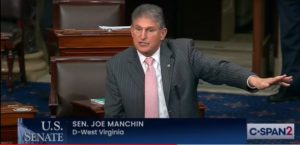 And in recent months a loose, if tight-fisted, coalition of Republican senators has emerged, showing some willingness to stray from McConnell's sternly shepherded senatorial flock. In February,
And in recent months a loose, if tight-fisted, coalition of Republican senators has emerged, showing some willingness to stray from McConnell's sternly shepherded senatorial flock. In February, 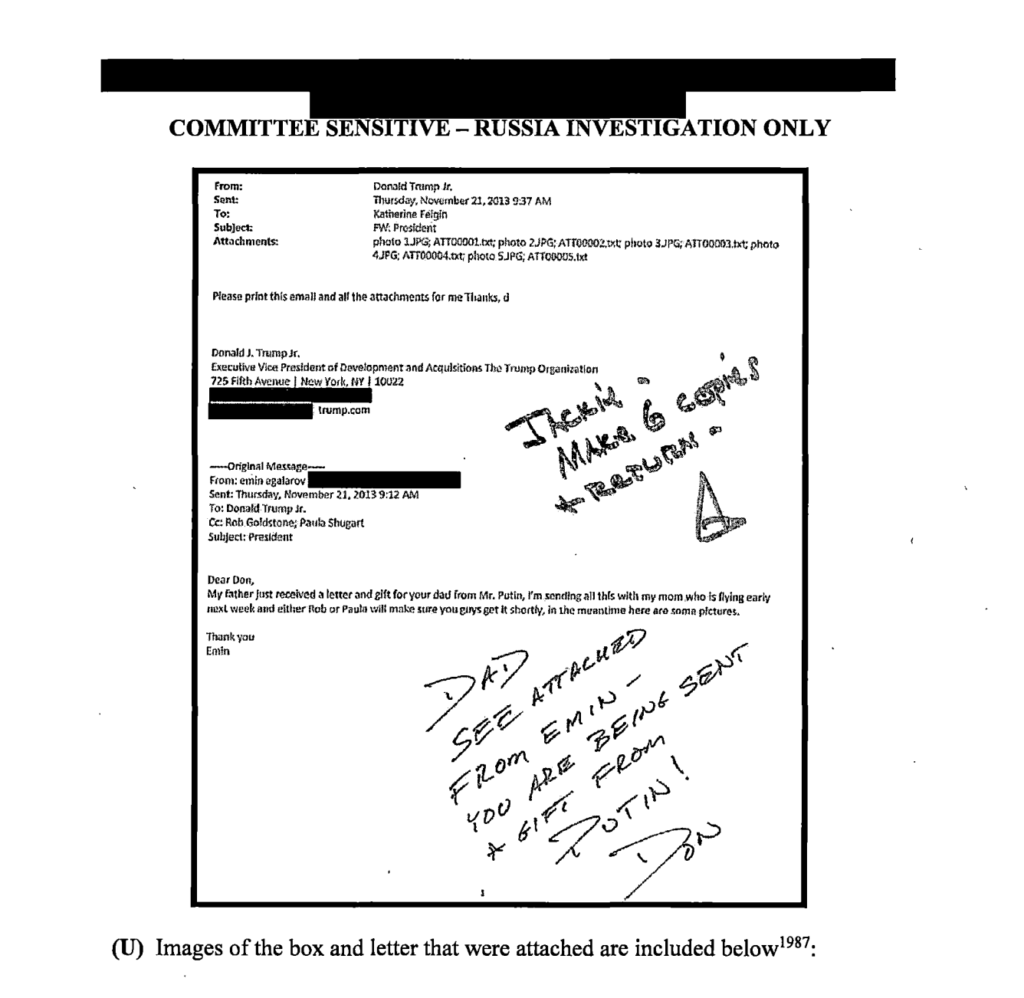 Trump's convicted and now-pardoned campaign manager Paul Manafort coordinated directly with
Trump's convicted and now-pardoned campaign manager Paul Manafort coordinated directly with 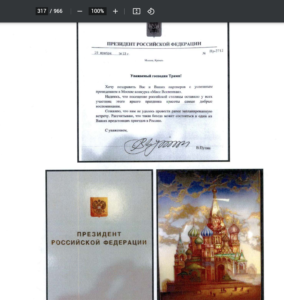
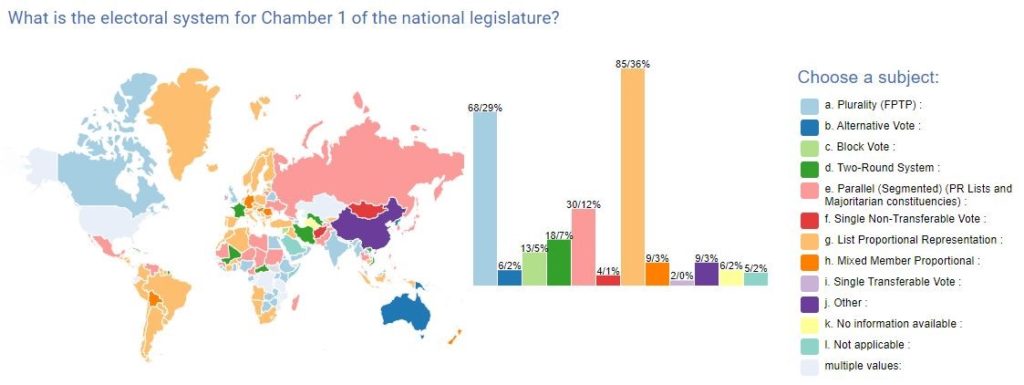
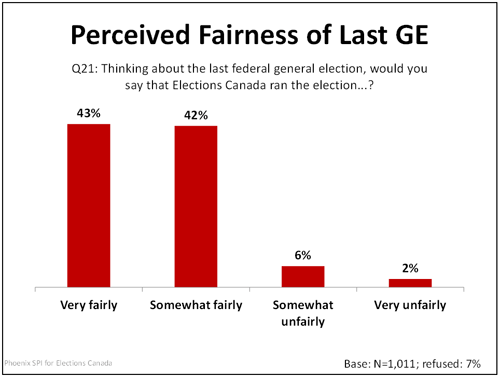

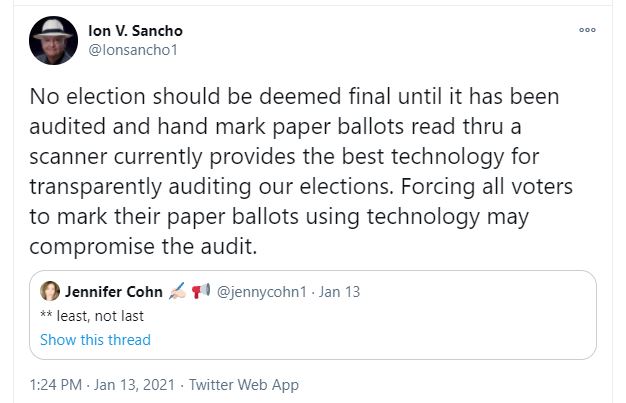
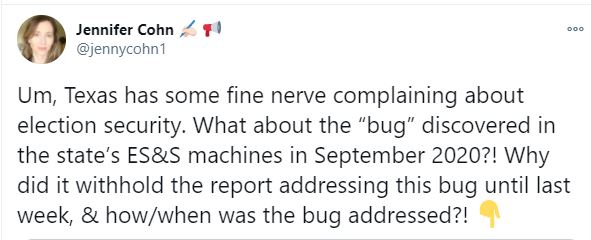
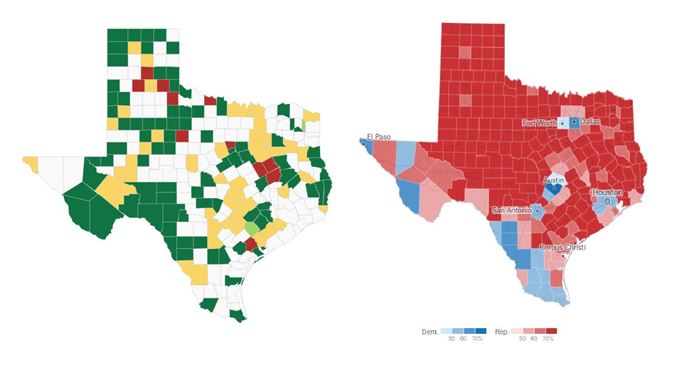 The map at right shows Texas counties with various ES&S voting systems. The map at left shows the county-by-county results for the 2020 presidential election. (Verified Voting and NYTimes)[/caption]
The map at right shows Texas counties with various ES&S voting systems. The map at left shows the county-by-county results for the 2020 presidential election. (Verified Voting and NYTimes)[/caption]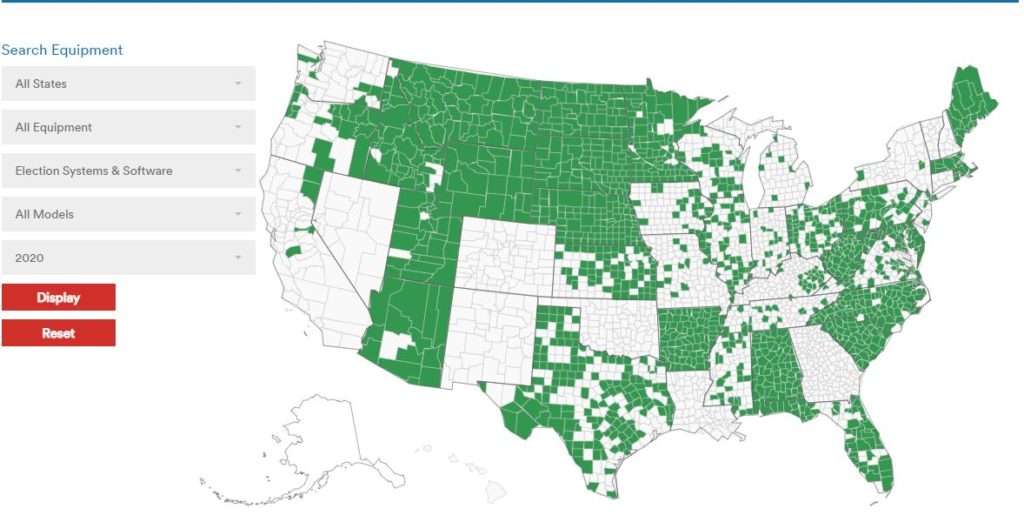 Counties that used ES&S equipment in the 2020 elections. (
Counties that used ES&S equipment in the 2020 elections. (